Unite! A New Start for China's Law Education | 5th Series Report of Teaching Reform in PKULS: Forums and Seminars
Date:2021-03-25
With the reform of teaching entering the deep water zone, the National Education Forum and the National Law Education Teacher Training Course are not only an important step in the reform of Peking University Law School, but also embody the "educational public spirit" of PKULS.
The transformation and upgrading of law education in China needs the joint efforts of the law community. Peking University Law School is willing to play a leading role in this historical process, but also look forward to working hand in hand with its brothers.
For many years, the phenomenon of "emphasizing scientific research but neglecting teaching" exists in colleges and universities in China. In some cases, scientific research has become the most important and even the only criterion for evaluating teachers. Of course, the overall level of scientific research in developing countries is still in the catch-up stage, and it is difficult to realize the synchronized docking and virtuous circle with teaching. At the same time, many domestic colleges and universities, including the teachers themselves, are still vague and hesitant to accept the idea that "talent training is the core mission of a university", which leads to an imbalance in guidance.
In 2020, the Central Committee of the Communist Party of China and the State Council printed and distributed the "Overall Plan for Deepening the Reform of Education Evaluation in the New Era". The plan makes a new arrangement for "perfecting the system and mechanism of establishing morality and cultivating people, reversing the unscientific orientation of educational evaluation, and resolutely overcoming the persistent malady of only scores, only enrollment, only diplomas, only theses and only caps". How to reform teaching evaluation, "perfecting the system and mechanism of establishing morality and cultivating people" and "advancing and fulfilling the mission of teaching and educating people" is a new task for college educators all over the country.
Peking University is the cradle of law education in China. It is also the forerunner and seeker of the reform of law education in China. PKULS always adheres to the policy of "attaching equal importance to scientific research and teaching", and regards teaching and research as the basic duties of university teachers. In recent years, in response to the orientation of "emphasizing scientific research but neglecting teaching" and correcting the trend of teaching reform, we should promote the supply-side reform of teaching, increase teaching products, improve teaching structure, and innovate teaching activities.
Since 2011, Peking University Law School has initiated a new round of teaching reform centered on curriculum increment. Case study courses, practical courses, writing courses, English courses and other new types of courses will be added. After nearly ten years of efforts, the number of new courses has increased continuously, and the national first-class undergraduate courses such as "Civil Law Case Study" and "Criminal Law Case Study" have emerged. Since 2018, we will further intensify teaching reform and continue to push forward the supply-side reform of teaching.
In terms of increment reform, we have set up the Peking University-Hong Kong University's dual undergraduate program of law; held the National Teaching Salon with young teachers as the main body, "Teaching Life Salon" with famous teachers as the main body and "Online Teaching Salon" with all teachers as the main body. With regard to the stock reform, we have held 80 "Staircase Law Lectures of Peking University" under the existing curriculum system to enhance the curriculum quality and teaching honor; we have integrated various teaching information, regularly issued "Educational Administration Work Briefings" to all teachers, and promoted the openness and transparency of teaching links including student recruitment, training and graduation; we have promoted various reading clubs, set up "second classroom" teaching programs, and encouraged and supported teachers to teach after class, so as to create an atmosphere in which teachers and students read together and concentrate on their studies.
The unswerving orientation of Peking University Law School has been adhered to focusing on talent training and attaching equal importance to teaching and scientific research. On the occasion of the promulgation of the General Plan for Deepening the Reform of Education Evaluation in a New Era and the call of the times to change the trend of education and to improve the system and mechanism of moral education, Peking University Law School is willing to work with its counterparts all over the country to answer the call of the CPC Central Committee to explore new ways of educational reform, and to share experiences and lessons with its counterparts and work together to promote the progress of legal education in China.
This issue presents the fifth installment of Peking University Law School's Education Reform: Notes on the "High-End Forum" and "Faculty Workshop".
As the leader and continuous explorers of China's law education, Peking University Law School pursues far from "protecting itself", but "helping the world". After a series of internal teaching reforms, Peking University Law School is not only willing to share the experience and lessons of the reform with the outside world, but also hoping to draw inspiration from its brothers, so as to provide a platform for dialogue and exchange for the overall development of China's legal education.
In line with this idea, Peking University Law School has held five National High-end Forums on Legal Education and the First National Training Course on Legal Education since 2014. After the epidemic, Peking University Law School will continue to hold a nationwide exchange of legal education, providing a platform for law teachers all over the country to discuss legal education.
Contents
01 Hundred Schools of Thought Contend, National High-end Forum on Legal Education
Managers and Practitioners: Discuss Top-Level Design
Law Education in the Era of Change: How to Meet the Challenge
Where to Go: Unify the Consensus of Different Schools
02 National Faculty Seminar for Legal Education
Training: Dry Goods and Skills Fly Together
Goals: Responsibility and Balance
03 All faculty and staff do their best to serve visitors
Dedicated to Teaching Reform Without any Personal Interest
A little detail to see the true feelings
04 Flowers are two separated, Going the same way
01 Hundred Schools of Thought Contend, National High-end Forum on Legal Education
In 2014, Peking University Law School held the first National High-end Forum on Legal Education, inviting nearly 70 front-line teachers or leaders from 24 law schools across the country. After five sessions of the forum, National High-end Forum on Legal Education has become an important platform for law schools to discuss each other's ideas and practices.
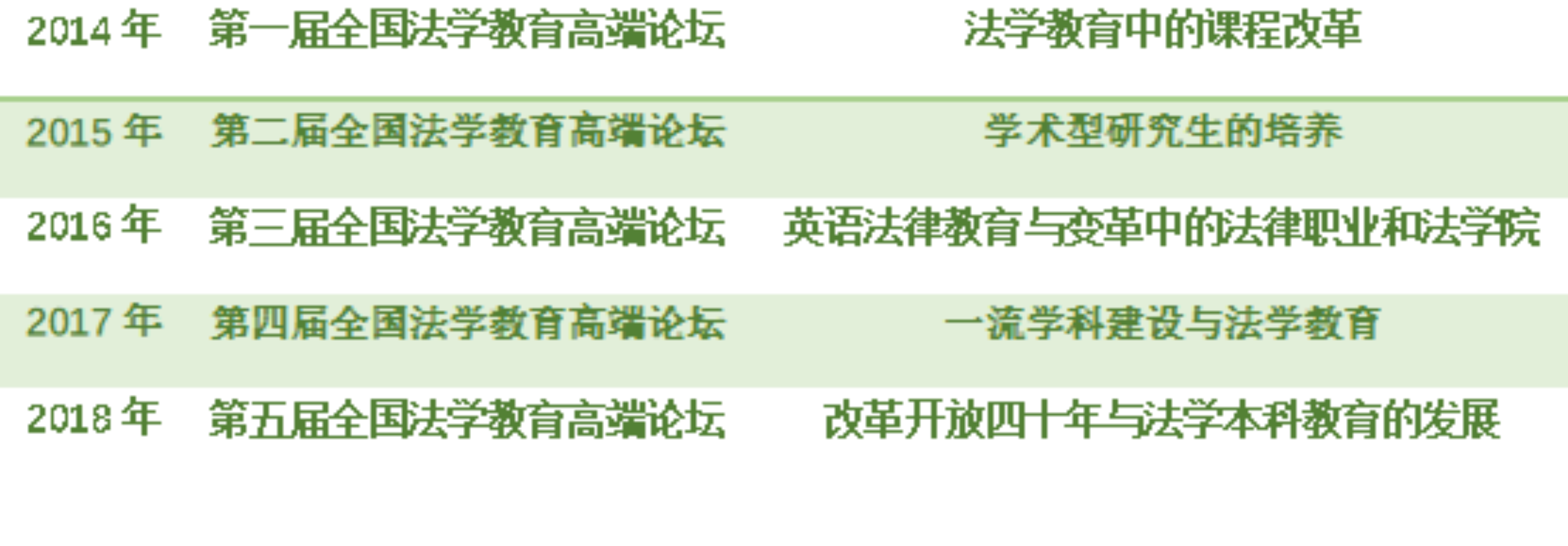
Managers and Practitioners: Discuss Top-Level Design
Most of the seminars with the theme of law education focus on the development of a certain kind of course and the exchange of a certain teaching method, but lack of thinking on the holistic reform of law education from the perspective of teaching administrator. Therefore, National High-end Legal Education Forum on Legal Education, besides inviting front-line teachers to share their teaching problems, aims to build a platform for teachers to communicate with each other, and encourages clashes of ideas on fundamental issues in Legal Education while listening to participants sharing their teaching experiences and methods.
Brilliant Rendition
Basic Schooling Model of the First National High-end Forum on Legal Education
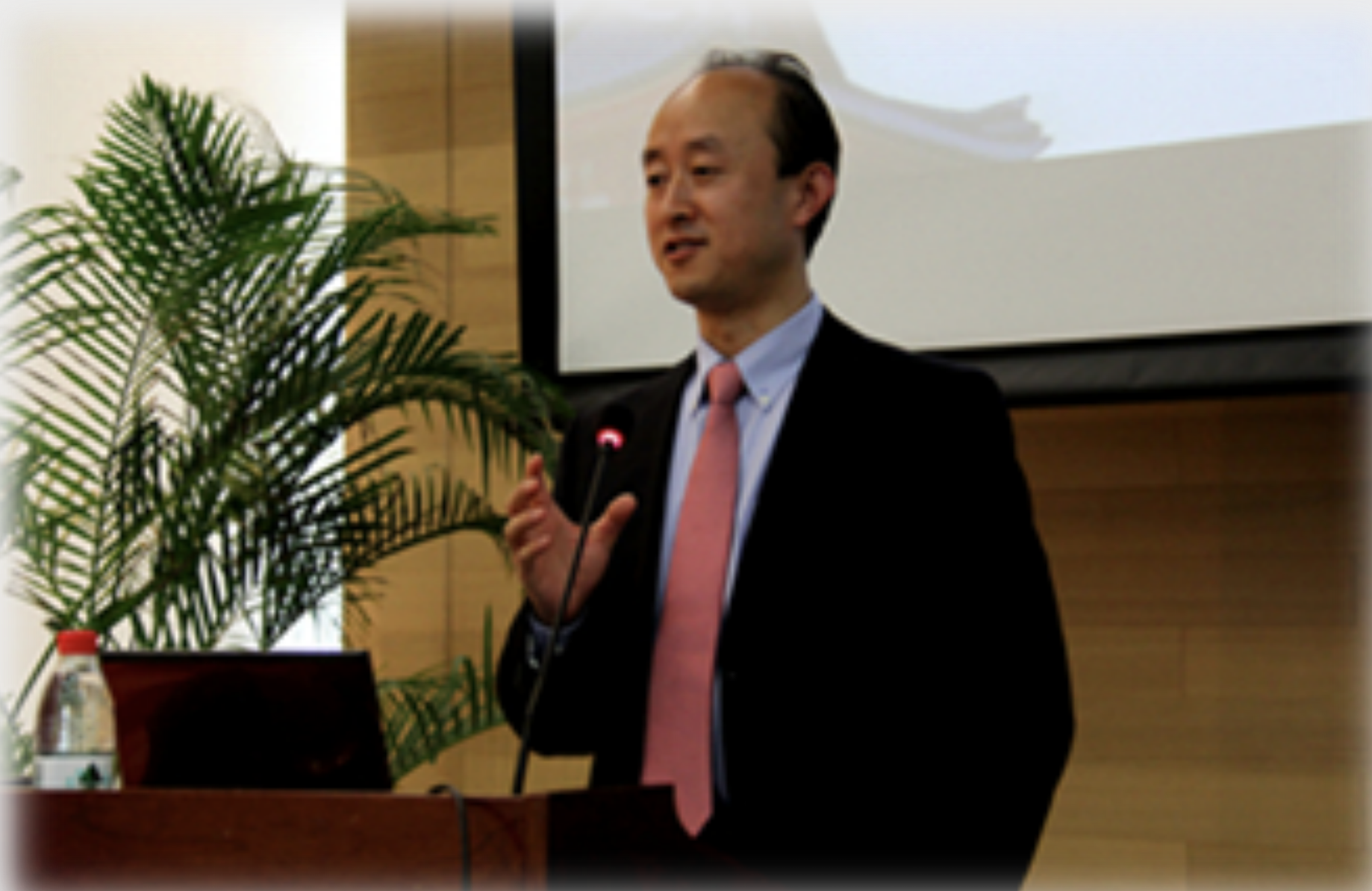
Our country's undergraduate students are indeed younger, under the basic education for more than ten years, most of them are naive and at a loss for the "outside world". Therefore, setting up a group of courses focusing on social sciences can not only broaden their horizons and prepare them for the study of law, but also provide a good starting point for their interdisciplinary research.
Therefore, we can design a six-year legal education model, in which students are given some preparatory knowledge courses in the first and fourth semester. These courses are basically compulsory, and are offered by teachers from the relevant departments invited by law schools, rather than by students. The reason is that law schools can communicate with relevant teachers in depth, so that they can tailor to the characteristics of law students, but also appropriate depth (not too much) and specific teaching methods. This kind of preparatory knowledge education can be classified as "general education", but it is not simply to let students choose certain credits in the course of natural science, humanities and social sciences, but to be designed and directly related to their future study of law courses. From its breadth, we can also regard it as a "strengthened version" of general education.
Another consideration is that Chinese undergraduates have many requirements for foreign languages, politics and so on. Preparatory knowledge education can be completed at the same time. In this way, from the third year onwards, students can fully enter professional courses. Moreover, through the first two years of study, study and adaptation to university life, students' minds have grown, which is also beneficial to the study of law courses.
Law Education: General Education vs. Vocational Education
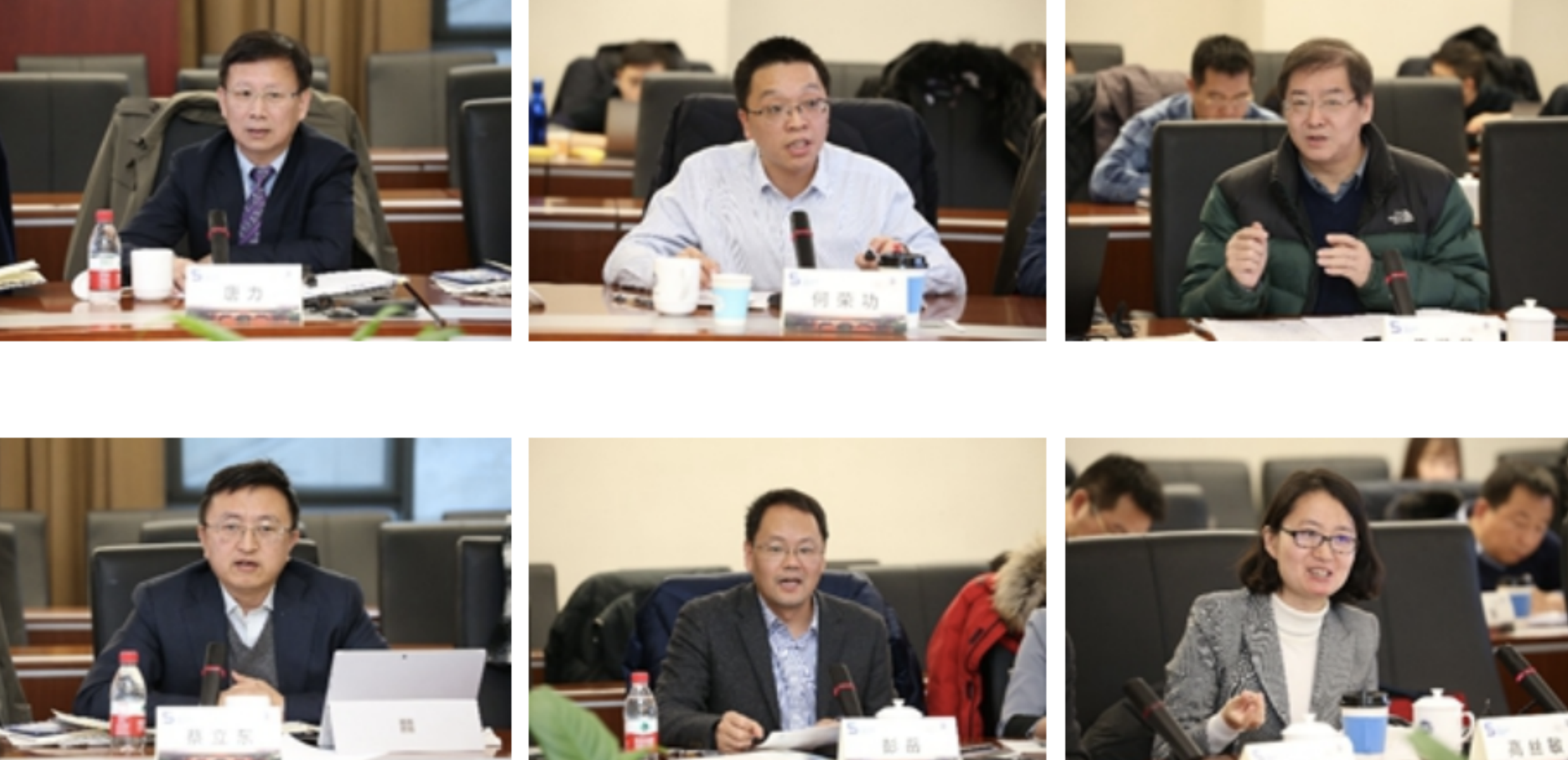
When discussing whether undergraduate education should be a kind of general education (liberal arts education) or vocational education, Tang Li, vice-president of Southwest University of Political Science and Law, believes that the ROC does not have a special institution like the Japanese Institute of Judicial Studies to undertake the function of professional legal training. Therefore, vocational education is bound to become the task of legal education in universities. However, general education is also essential to the cultivation of legal persons. Therefore, legal education should be a combination of general education and specialized education. He Ronggong, vice-president of Wuhan University Law School, believes that the status of undergraduate education and the insufficiency of former undergraduate education determine that attention should be paid to the study of other subjects and specialties at the same time. Jiao Hongchang, dean of the Law School at the China University of Political Science and Law, argues that law schools in the ROC are different from law schools in the United States, and that as far as general education is concerned, law schools are concerned. Cai Lidong, dean of the School of Law at Jilin University, has expressed some concern. He believes that general education is precisely the opposite of legal education. For law schools, it is not appropriate for law schools to fill their minds with knowledge outside the subject, but know nothing about basic legal hermeneutics. Peng Yue, vice-president of the School of Law at Nanjing University, points out that general education classes are of limited significance for new undergraduates, because general education classes are concerned, because they are concerned with social sciences, which is relatively low. Liu Jianbo, vice-minister of the Academic Affairs Department of Peking University, briefly introduced the specific practices of general education classes at Peking University. Gao Simin, assistant dean of Tsinghua University Law School, points out that it is not advisable to judge a course solely on the basis of "formal criteria". That is to say, one cannot mechanically assume that all courses in one's own school are specialized and all courses in another's own schools are general courses.
Legal Education in the Age of Change: How to Meet the Challenge
With the development of science and technology and social productive forces, a large number of new problems have emerged in legal practice. In the new era, the law and legal education are facing an unprecedented change. In an era of change, China's legal education needs to be in line with international standards, face the common challenges of the world, and face the problems of individuality.
In response to this situation, Peking University Law School held the Third National High-level Forum on Legal Education, and at the same time held the "Forum of Deans of the Asia-Pacific Law School", which received a warm response from leading law schools in China, brought together deans and representatives from leading law schools in the Asia-Pacific region, and presented their insights into the changing legal profession and school of law in the form of an English round-table discussion.
Highlights of the reproduction:
The Third National High-level Legal Education Forum on Legal Profession and Law School of in the Process of Change
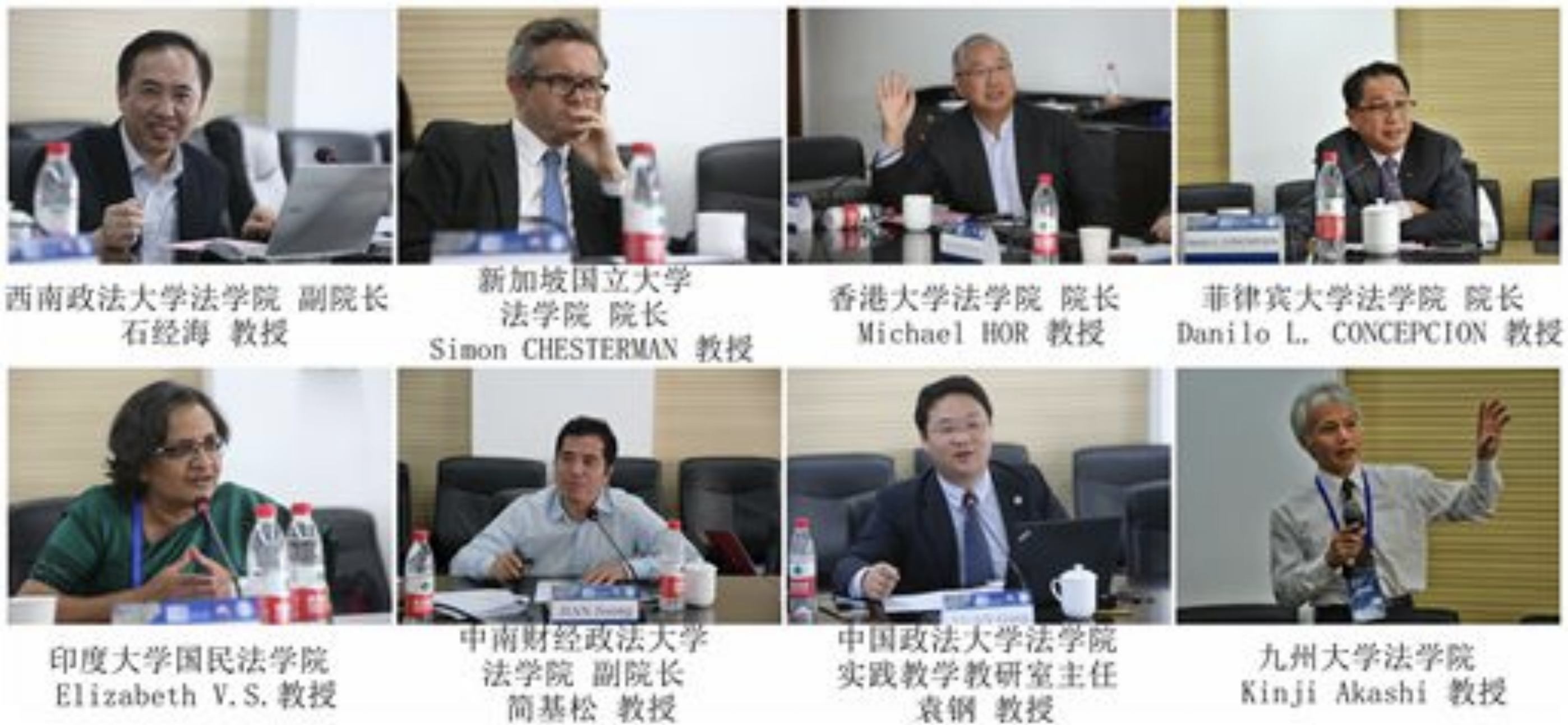
Shi Jinghai, deputy dean of law school of Southwest University of Political Science and Law, put forward some ideas on how to deal with the change. Dean Simon Chesterman, of the National University of Singapore Law School, is concerned about the change in the legal profession, arguing that with the emergence of regional communities and artificial intelligence lawyer services, the legal profession is facing multiple challenges, including internationalization and biotechnology. Dean Michael Hor, of the University of Hong Kong School of Law, said that the reform costs associated with internationalization of law education should not be ignored, and shared the University's current response. The Dean of Danilo L. Concepcion, University of the Philippines, agreed with Dean Simon Chesterman, and introduced the law profession in the Philippines, the basic situation of the law school, and the outstanding problems that currently exist. Professor Elizabeth V.S., National Law School of the University of India, analyzed the current situation of Indian law schools and expressed concern about the quality of vocational education. Deputy Dean of Zhongnan University of Economics and Law, Jian Jisong, described the new trend of the legal profession. Professor Yuan Gang, Director of Practical Teaching and Research Section of China University of Political Science and Law, pointed out that more attention should be paid to case facts and social status quo. During the exchange session, Professor Kinji Akashi, of Kyushu University of Japan, shared an update on the status quo of the Japan Bar Examination.
The Fifth National Forum on Law Education was held to celebrate the 40th anniversary of reform and opening up, so the theme was "Forty Years of Reform and Opening up and the Development of Law Undergraduate Education".
The Curriculum Design and Reform of Undergraduate Law Education in the Course of Law Education
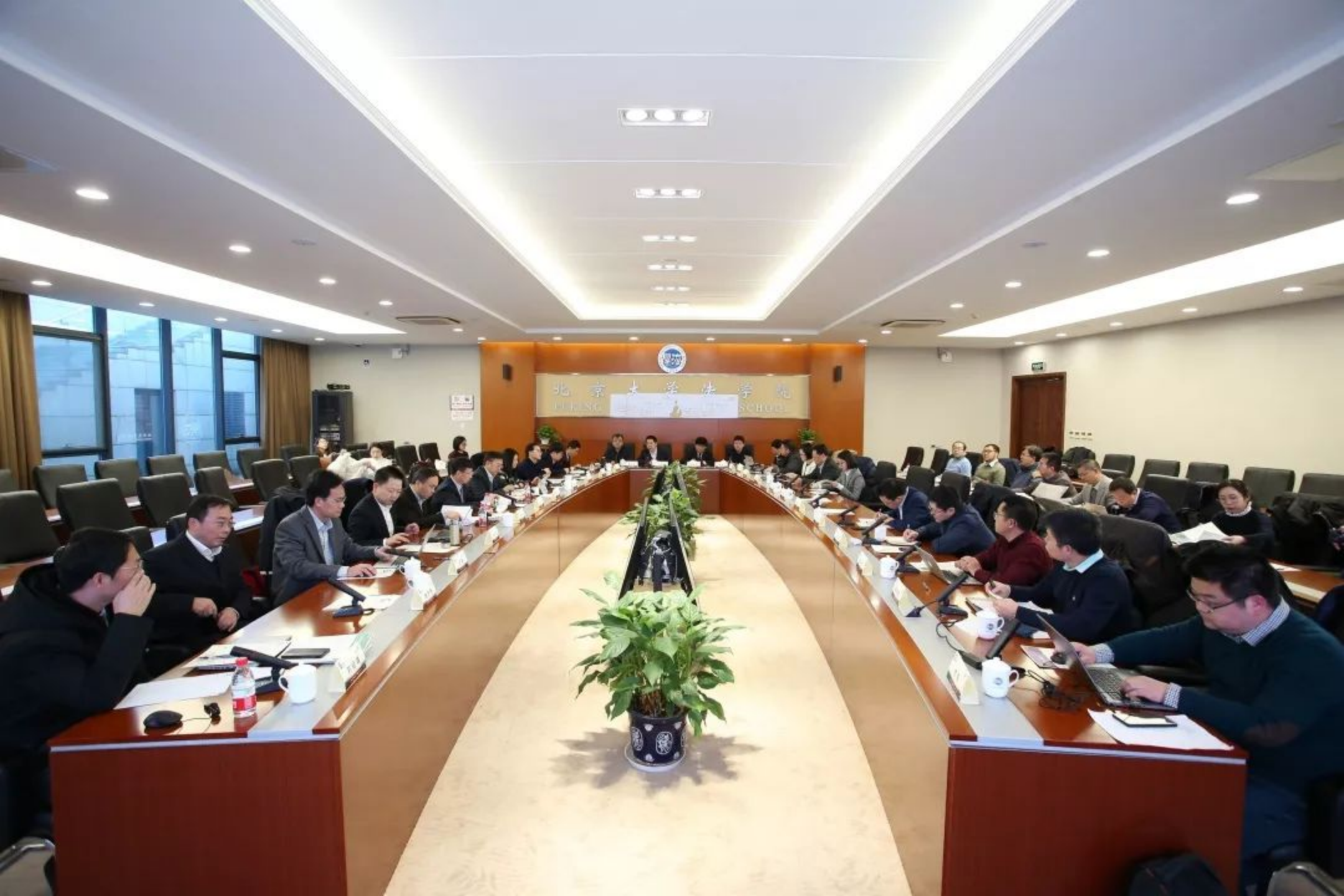
Focusing on the curriculum of undergraduate legal education and its reform, Pan Jianfeng, Dean of Peking University Law School, introduced the ideas of the curriculum reform of Peking University School of Law - further standardization of basic courses, further systematization of thematic courses, further diversification of practical courses, and further normalization of English courses. Du Huanfang, Vice Dean of Law School, Renmin University of China, introduced the NPC's curriculum reform. Chen Jingchun, director of the Educational Affairs Department of Northwest University of Political Science and Law, pointed out that for Northwest University of Political Science and Law, the main contradiction lies in the scale of enrollment and the limited resources. At the same time, the construction of information technology brings new opportunities for the teaching of law practice. Wang Qi, dean of Law School of Hainan University, pointed out that Law School of pays special attention to the needs of the local market and offers the law courses with local characteristics. Shen Shouwen, vice-dean of the Law School of Yunnan University, believes that the crux of the curriculum reform may lie not in the curriculum, but in the quality of the teachers. In detail, how to guide the teachers to devote their energies to the classroom and undergraduate education is a more critical and vital issue. Guo Beipi, Dean of Law School of Law at Zhongnan University of Economics and Law, introduced the "Appraisal Case Method" and the teaching and research team. Fang Le, as a representative of the Law School of Nanjing Normal University, put forward the concept of "Law Plus", which means that the curriculum should be fully considered. In a word, all the law schools have their own opportunities to cultivate excellent talents with deep theoretical knowledge and solid professional foundation.
The Direction of Legal Education: Rallying the Consensus of Different Schools
While building a platform for the discussion of law schools, the National Forum on Law Education has been working to promote the consensus of the participating schools on the issues of common concern. The consensus is not only the condensation of the insightful opinions of the experts on law education, but also the direction of the development of law education and the rule of law in our country.
Consensus of the First National High-level Forum on Legal Education (excerpt):
The reform of legal education should reflect the direction of de-administration of the education system. The law schools should enjoy full autonomy in the reform, and choose the reform path and development mode reflecting their own characteristics and the actual reform. On the basis of independent development, diversified modes and healthy competition among law schools, the law education can be full of vigor and vitality by strengthening cooperation with each other.
The reform of law education should follow the principles of honesty, pragmatism, steadiness and effectiveness. We must oppose and prevent illegitimate interests in the name of reform. The law schools should unswervingly fight against corruption, grandiosity and forgery.
The reform of law education should respond to the needs of the society. In the recent stage, the reform of legal education shall focus on the needs of the national judicial reform and the cultivation of international talents, and exploration shall be made in terms of curriculum arrangement, teaching methods, faculty introduction, international cooperation and other aspects.
Consensus of the Fourth National High-level Forum on Legal Education (Excerpt)
The relationship between law education and legal profession qualification examination should be carefully sorted out and scientifically understood. The legal profession qualification examination is a bridge between law education and legal profession. It is necessary to realize the organic combination and benign interaction between them. First-class legal education needs to cultivate students' practical ability to engage in the legal profession, but should not aim at passing the legal profession qualification examination, especially at avoiding one-sided emphasis on the training of examination-taking skills, but should cultivate more solid theoretical basis and legal skills, so as to explore a new way for the students to take part in the legal profession qualification examination step by step. The improvement of the level of legal education may promote the continuous improvement of the requirements for the legal profession qualification examination, and then the legal profession level.
02 National Faculty Seminar for Legal Education
On the basis of the successful experience of the High-level National Forum on Legal Education, the PKULS held the first National Seminar on Legal Education in 2019. With the theme "Civil Law Teaching Methods: Basic Courses and Case Courses" as its theme, more than 20 first-line teachers from more than 10 law schools across the country were invited to share their teaching experience and methods with 100 civil law teachers from 81 institutions and 32 undergraduates from 22 institutions in 2017 and 2018 levels.
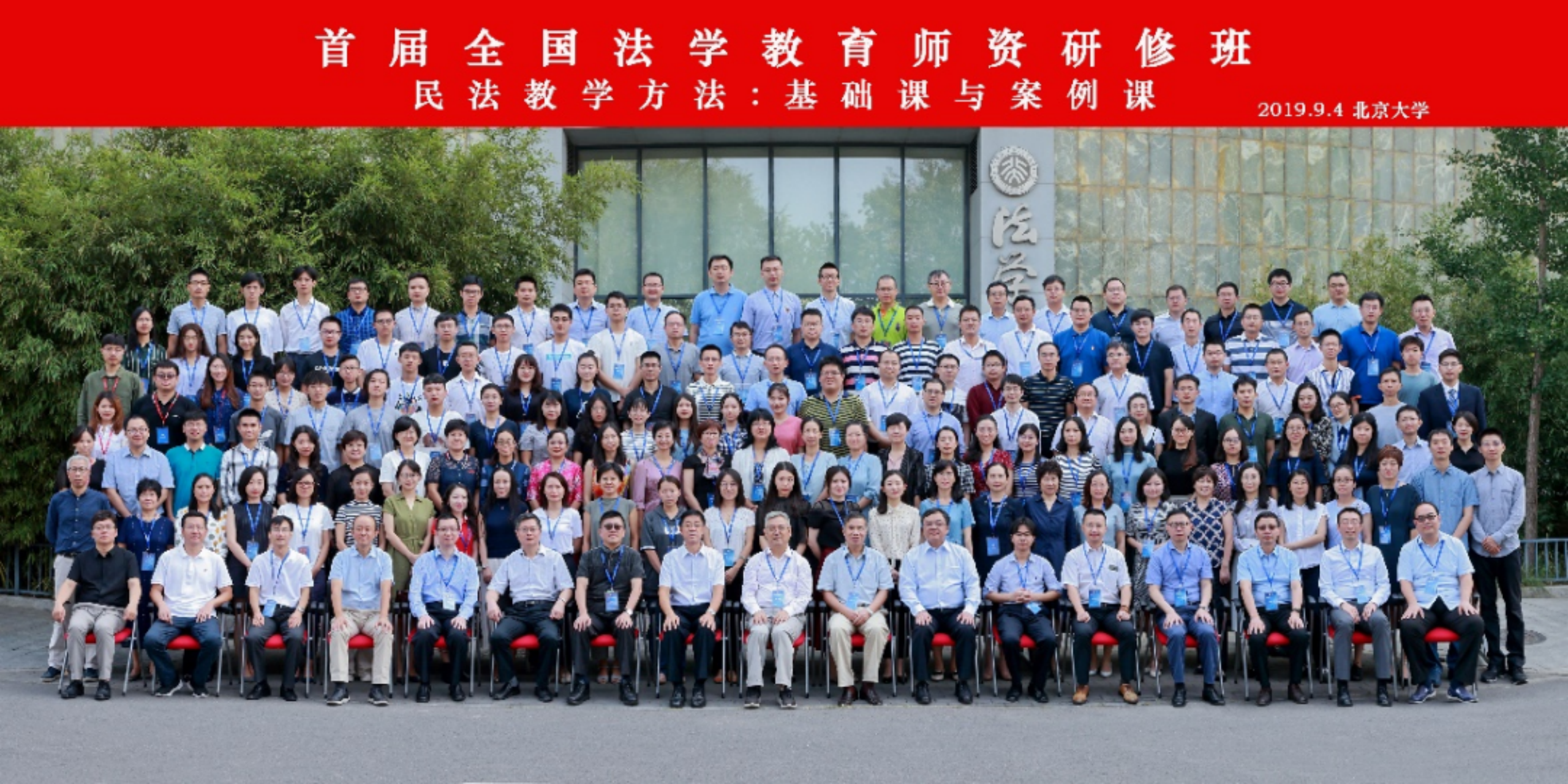
Training: Both Real Stuff and Teaching Skills
In order to overcome the problems existing in the traditional teaching of civil law, such as lack of basic knowledge, single training model, and lack of skills training, the class has arranged a wide variety of activities, ranging from senior experts' reports on teaching methodology to front-line teachers who are proficient in civil law teaching, to demonstrating the teaching methods of basic courses, civil law case courses, and interactive courses in large classes. In response to the compilation of the Civil Code, an evening academic forum was set up to invite leading scholars in China to have a direct dialogue on the main topics in the formulation of the Civil Code.
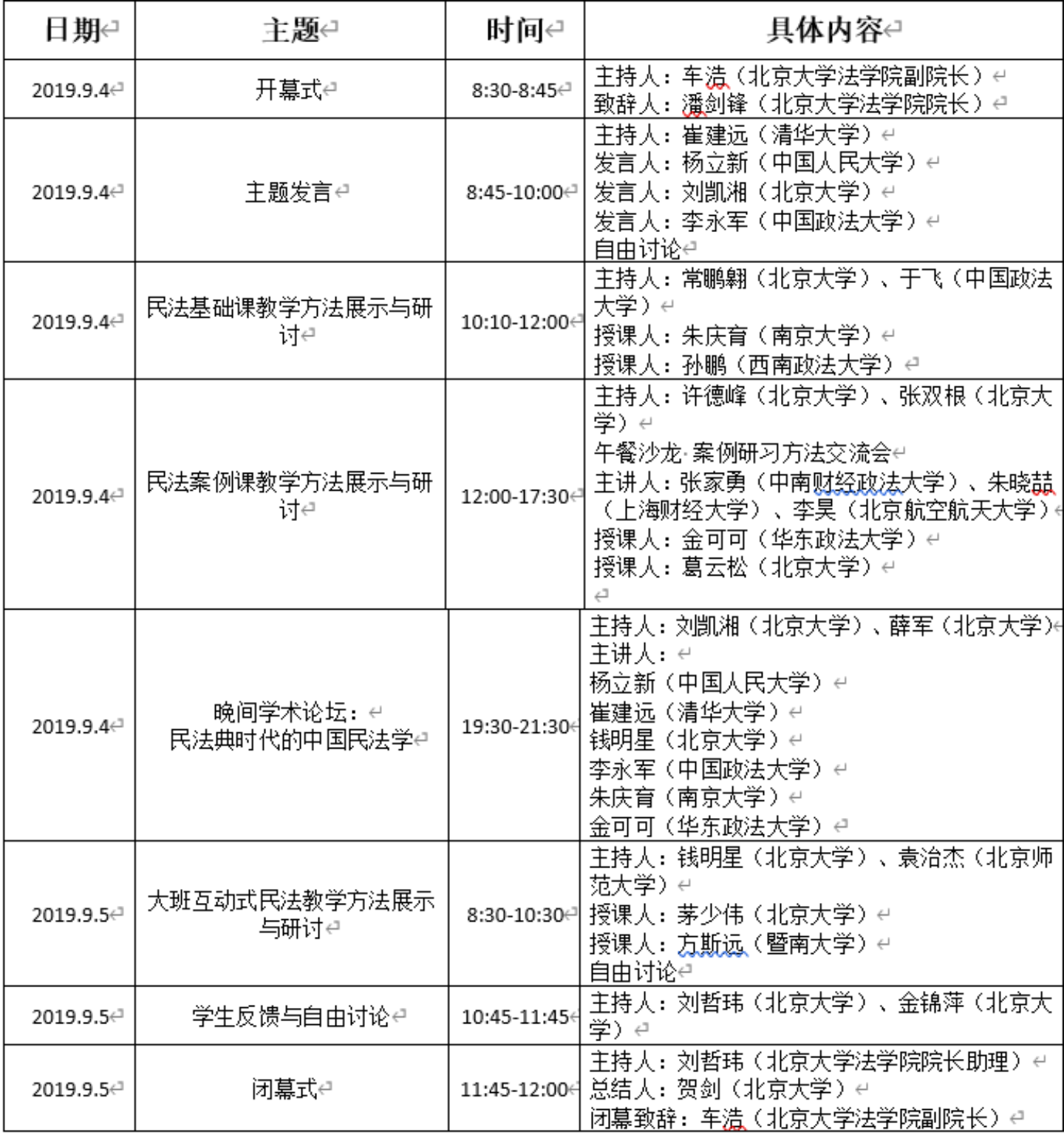
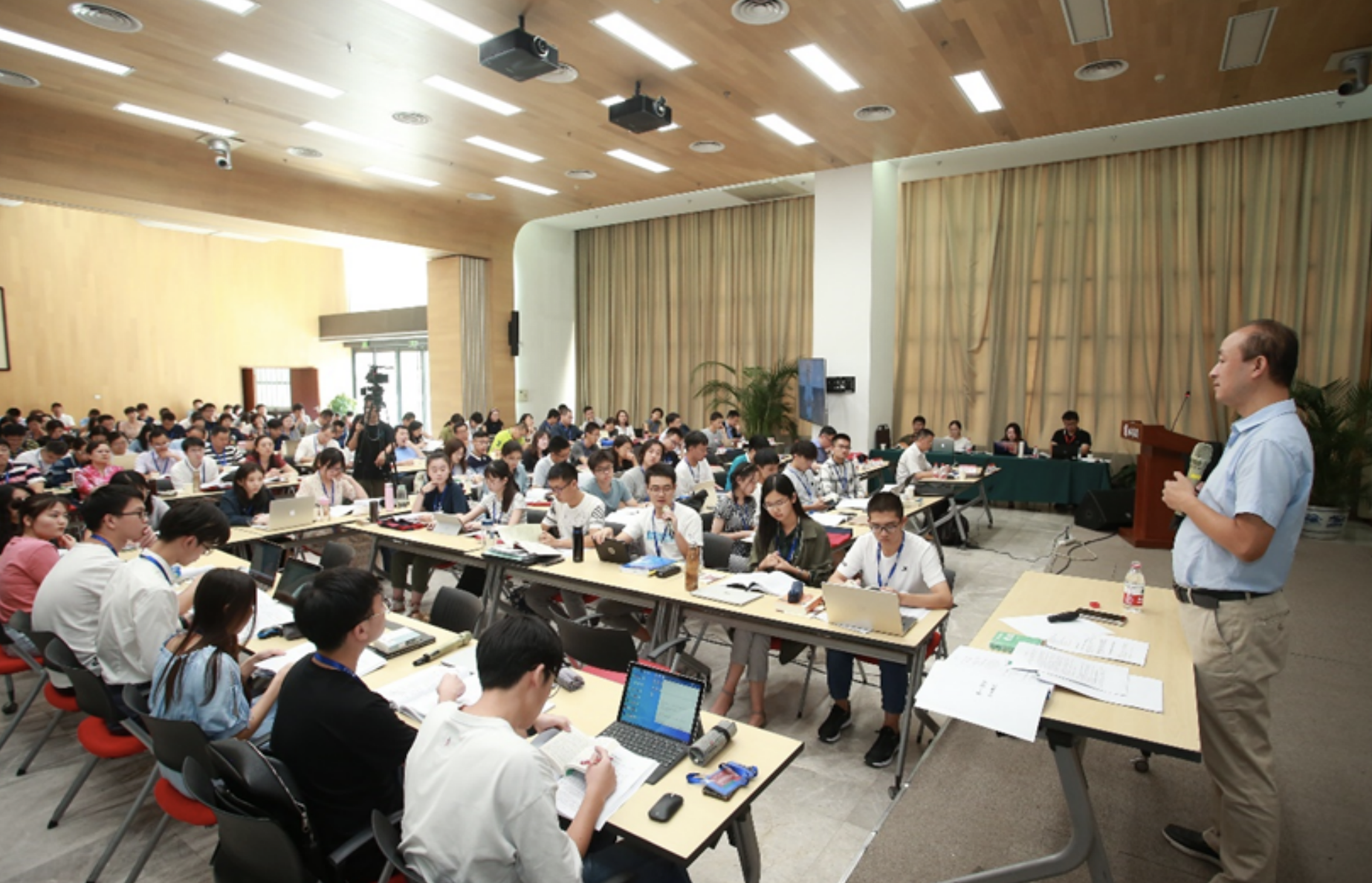
In the teaching demonstration session, the eight teachers have demonstrated their profound knowledge of law and superb teaching skills, presenting a series of excellent teaching demonstrations with excellent content, rigorous logic, well-structured structure.
Brilliant Reproduction
[Teacher Zhu Qingyu] Restricted Capacity and Effect of Legal Action
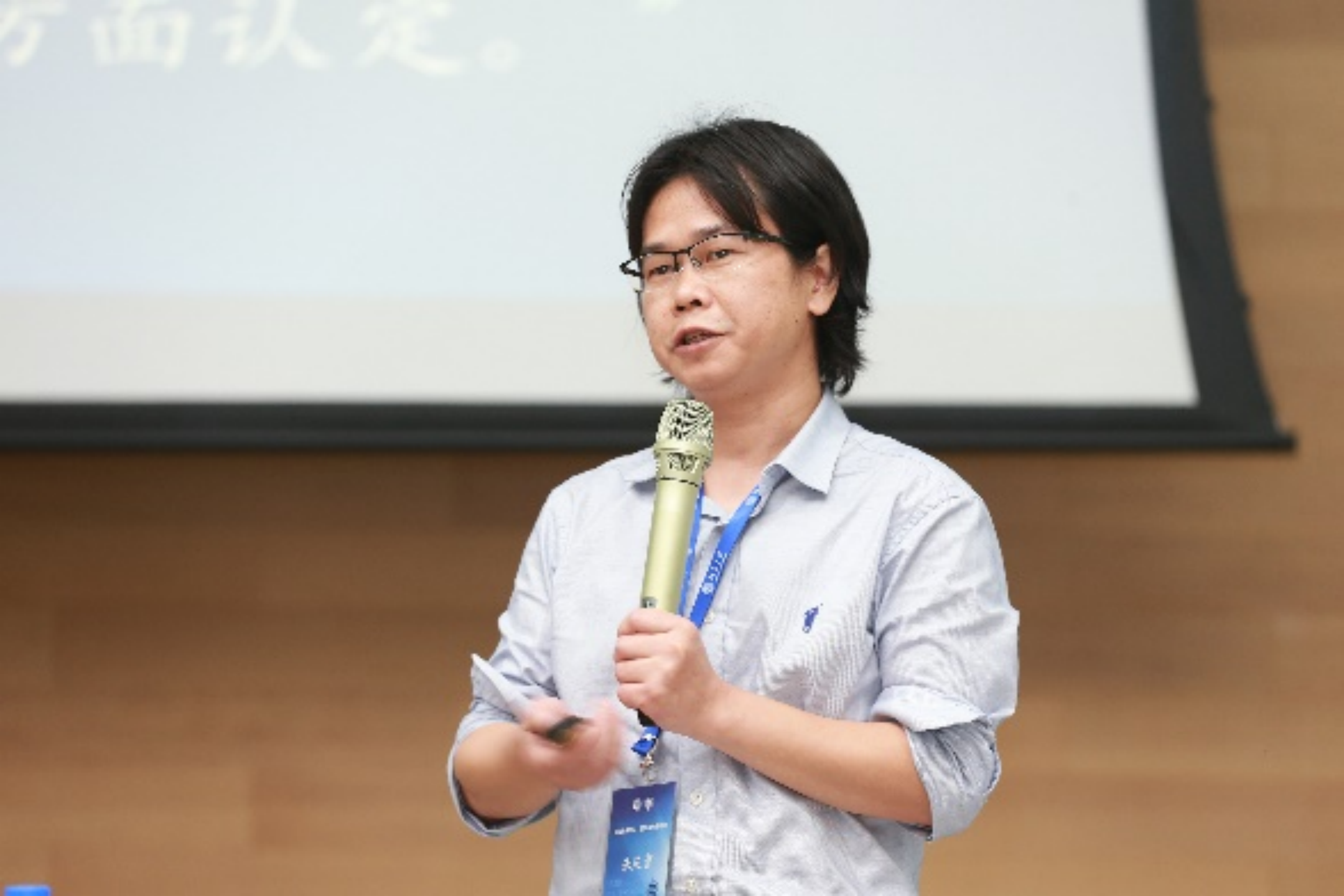
From the text, we will see that the expression of the law is "pure profit", assuming that the legislator can consciously use language, adding a "pure", and the ordinary day said that profit is not the same. For example, I said that Liu Kaixiang teacher is a good person, in this case, good and bad offsets the result is a good person, if it is a pure good person is a good person, there is no bad person. This net profit is not a net profit minus loss. To explain net profit, ask why this is meant to be "pure profit", what legislative considerations are, or what is the intent of the norms. One interesting thing we find in this interpretation is that when we answer what law is, interpreting law is to answer the question of what law is. But when we answer what law is, we usually answer another question — why. We answer "what is" by answering "why".
[Teacher Mao Shaowei] Defect of Intention: Fraud

Does Hong feel that the house was a bit of a problem before, but the client has moved in for some time. Good fortune stars, beaming, there is always an open page in history. If you are unfortunately assigned by the law firm as a lawyer for the defendant (the seller's lawyer), what can you do to help your client argue, how can you give Wang some reference and inspiration? Can you help him think of some ways? Can you help him think of some ways? There are some opinions from Wang's side in the verdict, but none of these opinions move you a bit? Isn't there a little bit of fun or meaning in it?
In the wonderful teaching and skillful guidance of the teachers, the atmosphere is lively, showing the charm of high-quality teaching, and the teachers and students participating in the seminar also called wonderful.
The listener said
Teacher Su Yi (Teacher of Jiangsu Police Officers College):
Professor Zhu Qingyu's "Limitation of Capacity for Action and the Effect of Legal Action" is derived from Chapter 8, Section 20, Section 5 of his textbook "General Introduction to Civil Law". The teaching style is calm and gentle, mainly through the use of domestic law to explore the general rules of freedom and control, exhortation and withdrawal, and to lead students to come up with or accept a relatively reasonable interpretation scheme, which is in line with the style of hermeneutics in the book. The difference is that Zhu's teaching does not talk as much about the comparison and development of German law as he does in his book. Such a treatment is appropriate. Of course, undergraduate students should also know why. As to what kind of theoretical and practical support lies behind it, it is not necessarily a task to be solved at the undergraduate stage. It can guide students who have the ability to do extra-curricular extended reading. In the use of Zhu's "Law Research Textbook", I often lest I fall into the situation of too complex theory so that students can not understand and accept the situation, Zhu's personal demonstration, so that I in the future in the content of the choice of a reference.
Chen Xiaowei (2017 undergraduate, School of Law, Jilin University):
Teacher Mao Shaowei is young, wise and energetic. In the basic class, Mao chose a case of "Haunted Residence" as the object of discussion to explore the specific definition of "negative fraud". Article 68 of "Min Tong Opinion" for "negative fraud" only one sentence "deliberately conceal the truth", so what kind of information should be identified as fraud? Miss Mao threw a question at us. Soon some students will raise their hands to answer, the answer and my heart is basically the same, is "information that has a material impact on whether a contract can be concluded or the conditions under which it can be concluded."Miss Mao then cites an example. In the business of buying and selling antiques, the price can have a material impact on the transaction. If the buyer finds its value, does the buyer have a duty to disclose it? If the buyer tells the seller that the article is antique, will the seller be willing to sell it? This question overturns the previous conclusion, forcing us to rethink the laws that define information. Miss Mao asked questions step by step, citing the transfer of company equity, school district housing and other examples, the question gradually deepened, I slowly have some clue. The final conclusion is based on the teacher's patient guidance and vivid examples, but also let me find the lack of reasoning, even for the guiding case, should also have their own thinking.
Goal: Responsibility and balance of the law
Emphasizing scientific research and neglecting teaching "is a common problem in China's colleges and universities, but the lack of high-quality teaching, as a reserve army of scientific research students can not receive good education in the basic stage, will undoubtedly hinder the sustainable development of scientific research level. For China's legal education, in order to reverse this unfavorable situation, the first step is to explore the meaning and value of teaching as an individual teacher. One of the aims of this class is to invite enthusiastic and methodical teachers to show how they should be taught, and to demonstrate their responsibility and mission as a law educator.
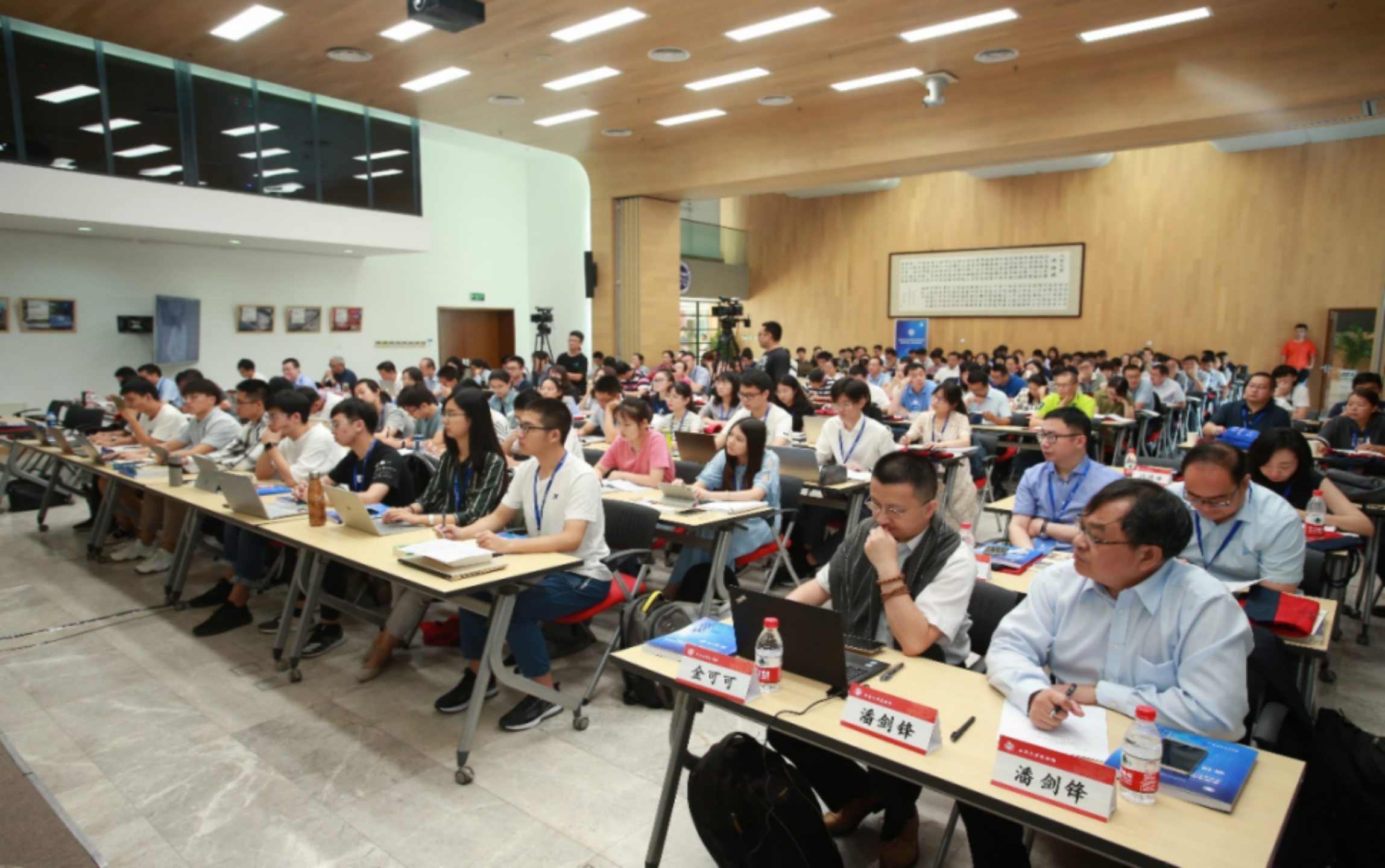
Jaspers once said that education is a tree shaking a tree, a cloud pushes a cloud, a soul The teachers invited by this class of teachers, it is the "tree that shakes other trees", "cloud that pushes other clouds" and "awakens other souls". For example, Liu Kaixiang said in the keynote speech about the teacher's mission, "Scientific research is the teacher's talent and hard work, while teaching is the teacher's duty."The most important task of a teacher is to prepare the course, stand on the podium, teach students well, class did not teach well, sorry teacher this profession, sorry teacher this profession. "In the feedback received by the teacher class, many teachers and students mentioned Liu Kaixiang's theme speech, and expressed deep emotion.
The researcher said
Teacher Song Baihui (Xi'an University of Technology teacher):
Professor Liu Kaixiang said in the keynote speech, "Scientific research is not done well, it does not matter, bad teaching is not done well". Civil law is a basic subject of law, and teaching it well is the key to guide students to consolidate the basic knowledge of law. The first class of law teachers chose civil law teaching method as the research topic, aiming at the core point of "improving the ability of cultivating law talents in an all-round way", to help teachers improve the level of civil law teaching and improve the ability of cultivating law talents. As a research teacher, I am deeply affected and determined to "love law teaching and devote myself to teaching law".
Shen Xinhang (Undergraduate School of Law, University of International Business & Economics):
The important premise of teachers' devotion to work is "loving work", and this kind of love for career is bound to be influenced by the love for discipline. In this class, there are many details that show teachers' sincere love for teaching. For example, in the keynote speech, Professor Liu Kaixiang once taught the function of the system of limitation of action as an example to illustrate the importance of teachers' holding the correct idea in teaching. He pointed out that the function of limitation of action in traditional textbooks is to urge parties to exercise their rights, which is contrary to the idea of civil law right protection. The correct interpretation of this idea is that the function of limitation of action is to stabilize the legal order. As an example, it is obvious that Liu raised her voice and speeded up her speaking as if she were teaching with passion. Whether it is the content, or external performance, people can clearly feel Liu's deep grasp and love for civil law, for civil law teaching enthusiasm.
In addition to the sense of responsibility for teachers, the real problem that university teachers also need to face is the relationship between teaching and research. In the eyes of many people, the relationship is absolutely conflict, because devotion to teaching is bound to occupy the time for scientific research. But, as Che Hao said in the closing speech, "A teacher only diligently thinking on knowledge, constantly studying the frontiers of professional problems, can really dominate the classroom."It is hard to imagine a teacher who has been guarding the professional knowledge system for decades, unwilling to understand and delve into the progress of this discipline, but can still speak passionately in the classroom. Of course, the basic duty of a good university teacher is to teach. But if you give up scientific research, you will be cut off from the source of living water. "Obviously, besides the love of teaching, in order to become an excellent law teacher, we need to constantly explore the way to balance teaching and research, and achieve the common progress of teaching and research.
In this class, Sun Peng's presentation of "the effectiveness of violations of mandatory legal acts" is the best illustration of the relationship between scientific research and teaching. In order to clarify the practical standpoint that compulsory norms affect the validity of legal acts, Sun Peng carefully studied nearly 300 cases, and on this basis, extracted the basic rules of judicial practice to deal with this problem, so that listeners have a more intuitive and in-depth understanding of the relationship between compulsory norms and the validity of legal acts, and fully demonstrated the charm of teaching based on scientific research.
Brilliant Rendition
[Teacher Sun Peng] Validity of Legal Acts in Violation of Mandatory Rules
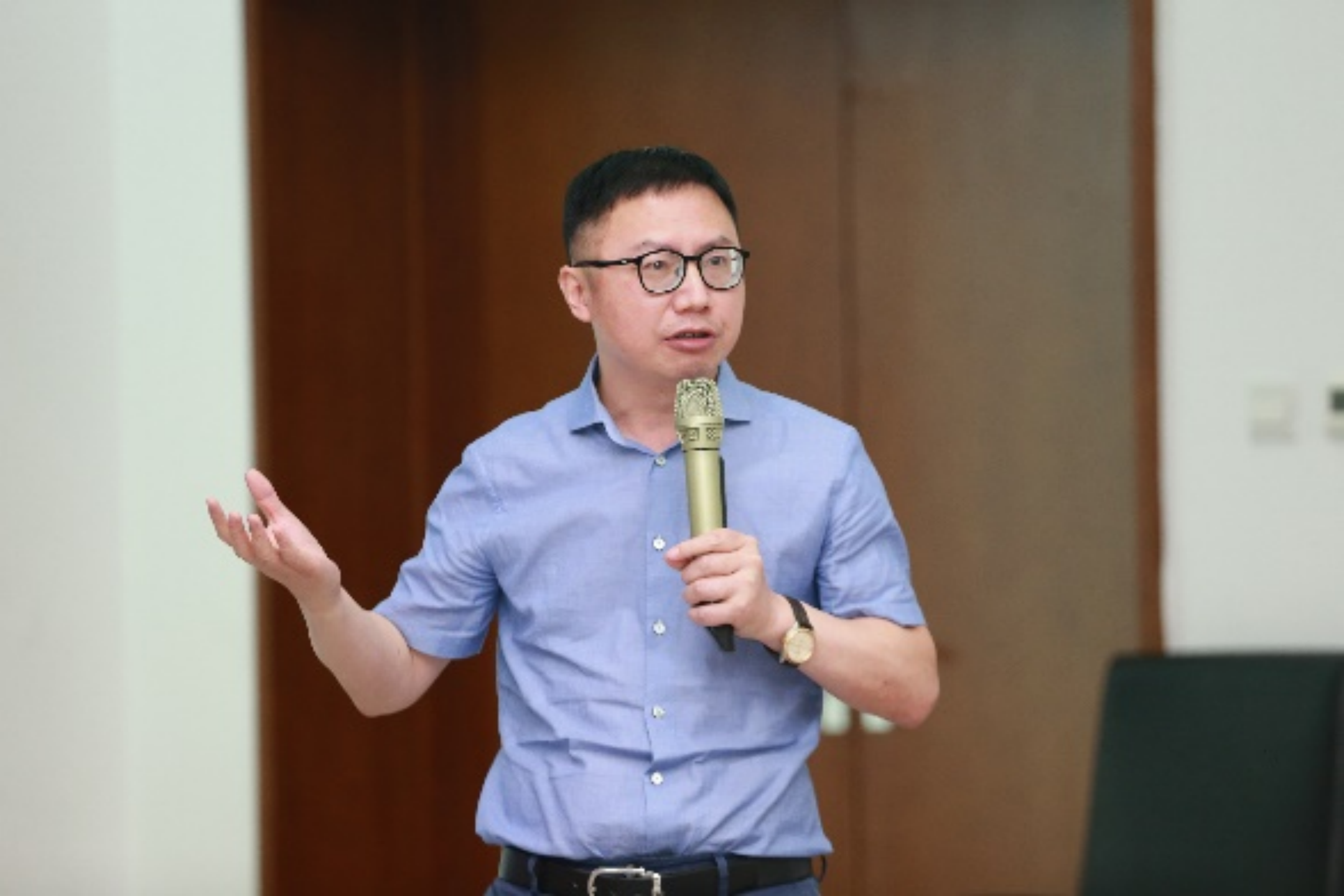
We summed up the violation of laws and administrative regulations through the massive judgment of the pure mandatory rules, why use the expression of the pure mandatory rules? In response, the three exclusions mentioned earlier, exclude norms that are not the mandatory norms we are discussing today. In 2010, I applied for a key research project of the Supreme People's Court: the issue of determining the effectiveness of illegal civil juristic acts. We went to many courts all over the country, distributed a lot of questionnaires, collected a lot of judgments, and their understanding of many norms was totally different at that time. The cases I am collecting now are relatively recent, and they were much older than they are now, so I was disappointed. I said the investigation was not reliable, because the subject of the investigation could not give me a regular thing at all. Let me more gratified, after the completion of this topic, I re-investigated, or found something with a certain regularity. But the so-called regularity still needs to be condensed and sublimated. That is the final topic we will discuss: paradigms of thinking.
03 All faculty and staff do their best to serve visitors
The success of the National Law Education Forum and the National Law Teacher Training Course have benefited from the attention, support and dedication from the teachers and students of Peking University Law School.
Dedicated to Teaching Reform Without any Personal Interest
As an important measure of the reform of Peking University Law School, the National High-end Legal Education Forum and the National Legal Education Teacher Training Course have received great attention and substantial support. Dean of Law School, Mr. Pan Jianfeng, and Deputy Dean of the Law School, Mr. Che Hao, have been in charge of the organization of the high-end legal education forums and seminars.
Mr. Liu Zhewei, assistant dean of the Law School, who has participated in the preparation of the high-end legal education forums and seminars, lamented that it is extremely hard to organize national teaching conferences. Unlike traditional academic conferences, teaching conferences need to be carefully designed and arranged in order to truly make a difference. The PKULS took great pains to run high-end forums and teacher classes, especially in order to show the teaching scene in the teacher classes, to select student representatives to the whole country, and to show the teaching forms of discussion courses such as case study, etc., thus giving full play to the teaching functions of teaching meetings. Organizing such a conference can be a huge drain on organizers' time and effort. But it is the mission and responsibility of Peking University Law School to unite the managers and teachers who are interested in law education to share ideas and explore methods.
Peking University Law School's initiatives to promote the formation of the teaching community have been widely supported by the teachers. In the course of holding the National High-end Legal Education Forum, Mr. Pan Jianfeng, as the principal of the School's teaching reform, gave special reports on the experience and enlightenment of teaching reform at the forum. After the College proposed a seminar and training for law teachers, Mr. Liu Kaixiang volunteered to take the lead in the course of civil law. All the teachers were present at the meeting, either in person or with sharp comments. In order to ensure the quality of teaching, the teachers also actively contacted their academic friends, and finally laid the foundation for three generations of famous civil law teachers to gather together in Yanyuan.
The successful holding of the High-end Legal Education Forum and Teacher Class can not be separated from the excellent logistical support of the Conference Group. In order to ensure the smooth running of each activity, Peking University Law School will organize a conference group composed of the School Administration teachers and students. The conference group usually organizes and plans from three to four months before the official opening of the activity. For example, the Teachers' Class has been actively engaged in the preparatory work immediately after the end of the Spring Semester. Many administrative teachers and students have sacrificed their vacation time, and some students who were overseas have been participating in the preparatory work remotely in various ways.
Xu Xiaoying, deputy director of the Academic Affairs Office of the PKULS, said that in the process of preparing the class, the enthusiasm of the teachers and students was very encouraging. It also reflected the importance and urgency of improving teaching methods and building a teaching community. After the announcement, the preparatory group received applications from the universities and colleges across the country, whose capacity is several times higher than that of the class opening capacity, and this enthusiasm continued to the stage of participation in the seminar. Although still carrying the tiredness of the trip, the concentration and devotion of each teacher and student in the high-density, fast-paced, multi-form workshop is moving.
Despite its efforts, Peking University Law School has been determined to hold the National Law Education Forum and the National Law Education Teacher Training Course. Not only does it charge no fees to the teachers, but also tries to communicate with the students through various channels, hoping to share the results of the Forum with the outside world. In order to pass on the consensus of the forum to the outside world as soon as possible, the students who are responsible for the on-site recording of the forum finished sorting out the materials of the forum so that the relevant media can report on time. Thanks to the active contact of the faculty, one of the most important parts of the class, the evening academic forum, was finally opened to the public via live webcast. After the forum was broadcast live on the network, the forum attracted many netizens, causing great repercussions.
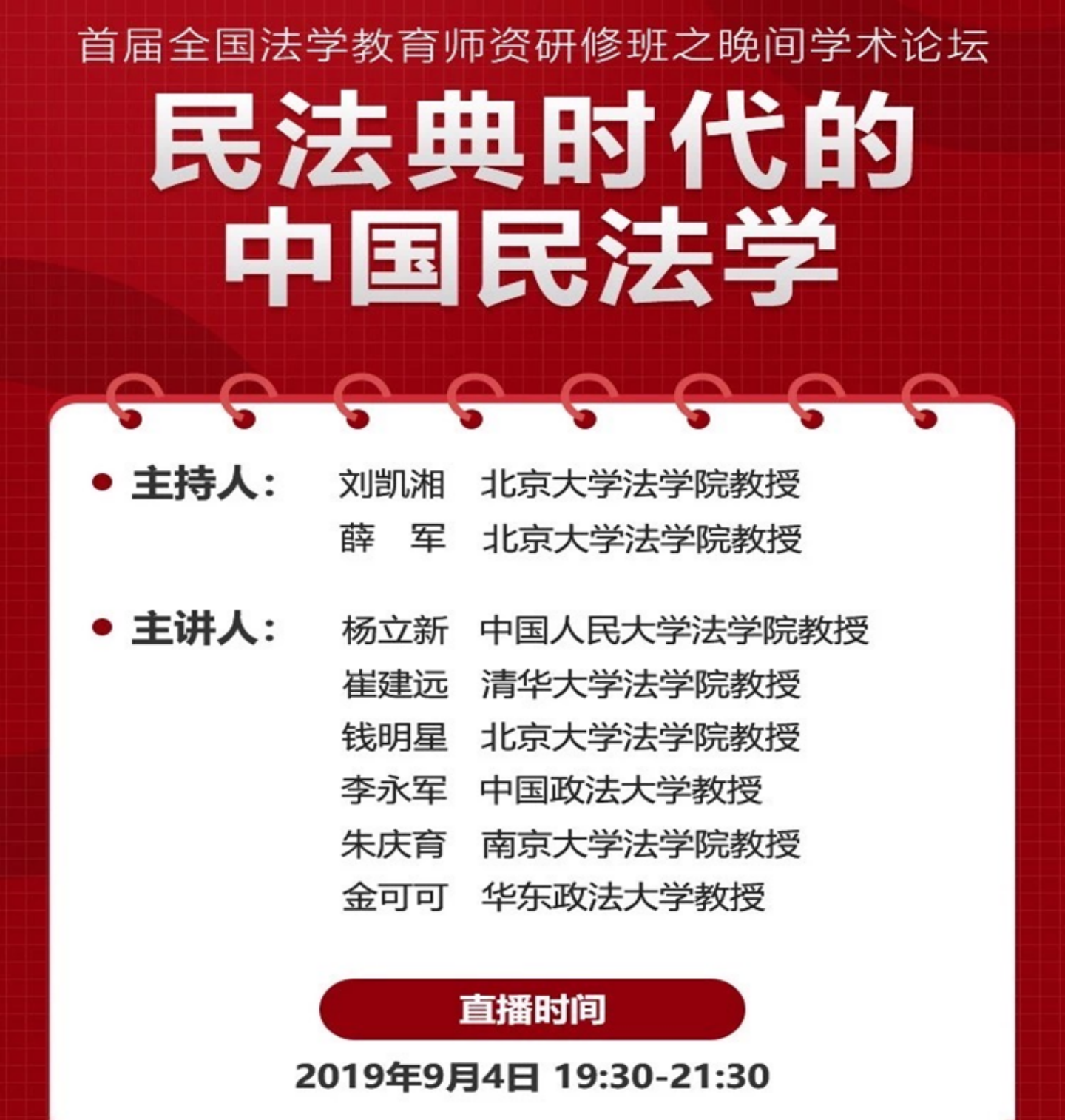
A little detail to see the true feelings
In the process of holding the National Forum on Legal Education and the National Seminar on Legal Education for Teachers, the "Welcome at Home" has been adopted as a program of action from the whole college level to the participating organizers, which is reflected not only in the Forum and the seminar itself, but also in the details of its preparation, conduct and conclusion.
The emphasis on the details first manifested itself in the work related to the theme of the conference. In order to make the most of the day and a half, for example, the conference group will try its best to enrich the activities. Before the seminar, the Conference Group will compile the courseware of the case study course presented by the instructor and the case assignments completed by the students into a book for the convenience of the participating teachers. During the seminar, the courseware of the guest experts will be sent to the participating teachers and students in time through WeChat group.
In addition to the theme of the conference group's work, the conference group's "detail control" is also reflected in the life. In order to enable the students to devote themselves to the study, the school not only reimbursed the travel expenses of all the students coming to Beijing from other schools, but also in the vicinity of the school. In view of the fact that many teachers and students are coming to Beijing for the first time, the conference group has designed the best transportation routes according to the possible arrival stations from other places to Beijing, and arranged receptionists to guide the teachers and students to check in.
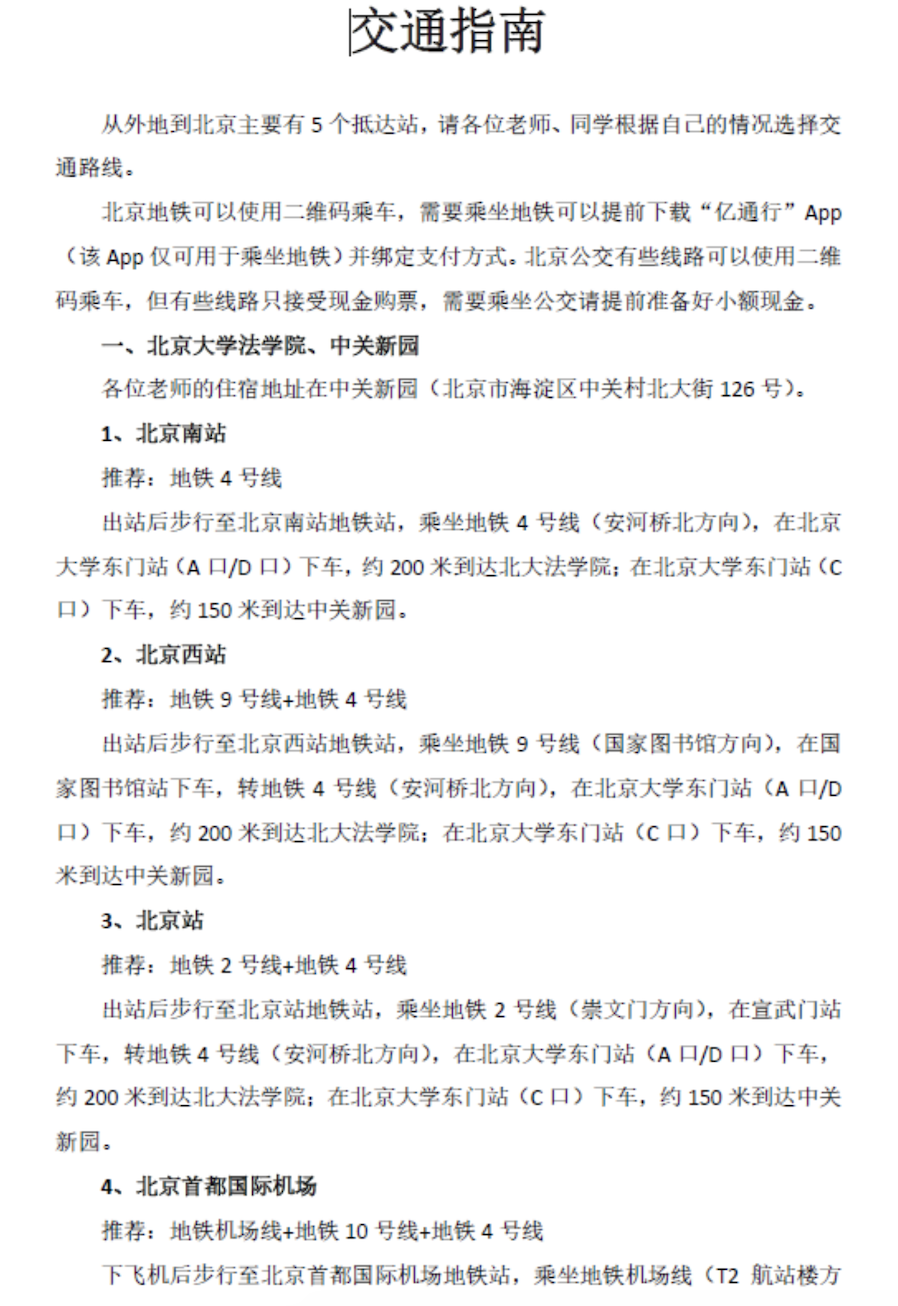
In order to let the guests and teachers enjoy the time in the school better, the conference group also used pictures and tables to explain in detail the accommodation, network service, leisure and entertainment in the Garden. In Haidian District, "Famous Tourist Attractions", the conference group also organized a "Lake Tower Color" themed punch out tour for the teachers and students.

Teacher Gao Yipeng (Shenyang University of Technology):
Coming to Beijing before the autumn breeze, we found that the meticulous and thoughtful teachers and students of Peking University Law School, as well as their interest in the subject and their desire for exchange of teaching, are more enthusiastic than this weather. I would like to thank the teachers of the PKULS for arranging such a rich and dramatic "spiritual and cultural feast" for us, which enabled us to appreciate the advanced experience and development direction of civil law teaching in mainland China in a short time, especially the wonderful contents of case study, and to enjoy the spiritual feast of famous scholars of civil law.
Thanks to the teachers and students of PKU Law School for their warm and thoughtful preparation, we can enjoy the beauty of Yanjing and Peking University, and feel the open and enterprising, all-embracing under strict campus security, and taste the famous Yanyuan Building of the National Key Cultural Relic Protection Units. Weiming Lake of Weiming Lake, Boya Pagoda, the master of Yannan Garden hidden in the school, let people in the hot and dry season and impetuous dust, feel the rare quiet and calm.
04 Flowers are two separated, Going the same way
Generally speaking, there are still some outstanding problems in current law education, such as insufficient supply of resources, imbalance of development, existing barriers in system and mechanism, unreasonable evaluation methods and excessive pursuit of data. According to incomplete statistics, there are more than 600 colleges and universities with more than 100,000 students graduating each year. How to make law students receive better law education under the current situation is not only a problem that the whole law education circle in China, but also an important link in the process of rule of law. But at the same time, the concept and construction of teaching community has not been paid enough attention to in Chinese universities and educational circles, compared with the growing academic community.
The solution to these problems cannot be provided independently by any one teacher or law school. It requires the joint efforts of the community committed to promoting law education. Therefore, it is not only a work of conscience that emphasizes teaching as the foundation and promotes the formation of "teaching community" of law, but also relates to the cultivation of talents of rule of law and the future of rule of law construction in China.
Although there are many differences in form and content, the National Law Education Forum and the National Law Education Teacher Training Course serve the same goal, that is, to promote the overall development of law education in China. The former is mainly for teaching administrators, focusing on providing a better basic environment for teachers' teaching, but also for teachers, the latter aims to improve the quality of teaching through the exchange and sharing of teaching methods. Although t Flowers are two separated, the goal is same.
Talking about the formation and development of the National Law Education Forum, Mr. Zhang Shouwen, former dean of Peking University Law School, said that the National Law Forum was held to bring together people in the field of law to strengthen the research and practice of teaching, so as to promote the continuous progress of law education and the construction of rule of law in China in the new era. Guo Li, secretary of the Party Committee of Peking University Law School, also said in an interview with Peking University News Network, "as a provider of legal education services, colleges must be strict with themselves, keep improving, and provide high-quality education products."In order to have a better understanding of this kind of problems, Peking University Law School takes the law education itself as the theme and studies it seriously. Peking University Law School has successfully held the "National Law Education Forum" for many years, bringing together major law schools in our country and even in the Asia- Pacific region.
In his closing speech entitled "No Loneliness for the Idealists", Che Hao summarized the original intention of holding the National Law Training Course. "Peking University Law School is only one of hundreds of law schools in China. The reason why we came forward to set up this National Law Education Course is not because of the authority of the government or to make money for training. What we can show to you is that we have a passion for mutual support and joint efforts.......... In the current context, teachers in many colleges and universities across the country often work alone in their teaching positions, and sometimes even can't get full and fair evaluation in their own units because of their teaching efforts. Therefore, the purpose of this course is to start from little by little to change the atmosphere of emphasizing scientific research and neglecting teaching. It is an urgent task for the Chinese legal education to build a teaching community that works hand in hand and keeps warm. Peking University Law School is duty-bound and willing to stand up to this task and challenge.
We are delighted to see that the ideas that the National Law Education Forum and the National Law Education Teacher Training Course are being accepted by more and more people. Perhaps just as Su Yi, who participated in the course, said, "A teaching community that works hand in hand has become an urgent task for the Chinese legal education community."The success of the National Law Education Teacher Training Course has undoubtedly laid the first solid foundation for the establishment of this teaching community. When we sigh with emotion that China's law education is like the sea, perhaps we will miss the first spring flowing out of Peking University Law School in the autumn. "
Looking forward to the future, facing the change of teaching methods and ideas, how to adjust the future plan according to the development of technology will be an urgent task for the follow-up National Law Education Forum and the National Law Education Teacher Training Course. While looking forward to spring and the fading away, we are also looking forward to gathering together with old and new friends in Yanyuan. The PKULS is always on the way to promote the realization of the legal education community.
With the reform of teaching into the deep water, the National Law Education Forum and the National Law Education Teacher Training Course are not only an important step for the opening up of Peking University Law School, but also embody the "educational public spirit" of Peking University Law School. The transformation and upgrading of China's law education needs the joint efforts of the law community. Peking University Law School is willing to play a leading role in this historical process, but also look forward to working with its brothers.
Translated By Chen Weining
Edited By Zhang Dayuan



